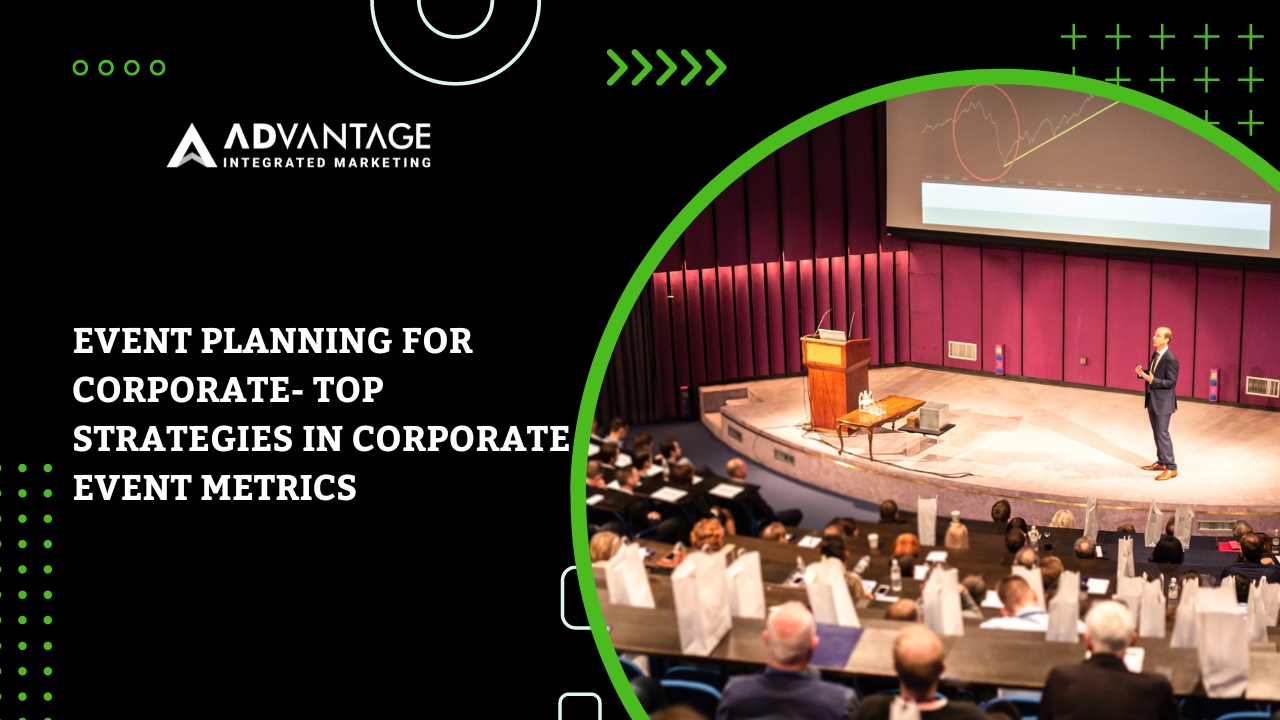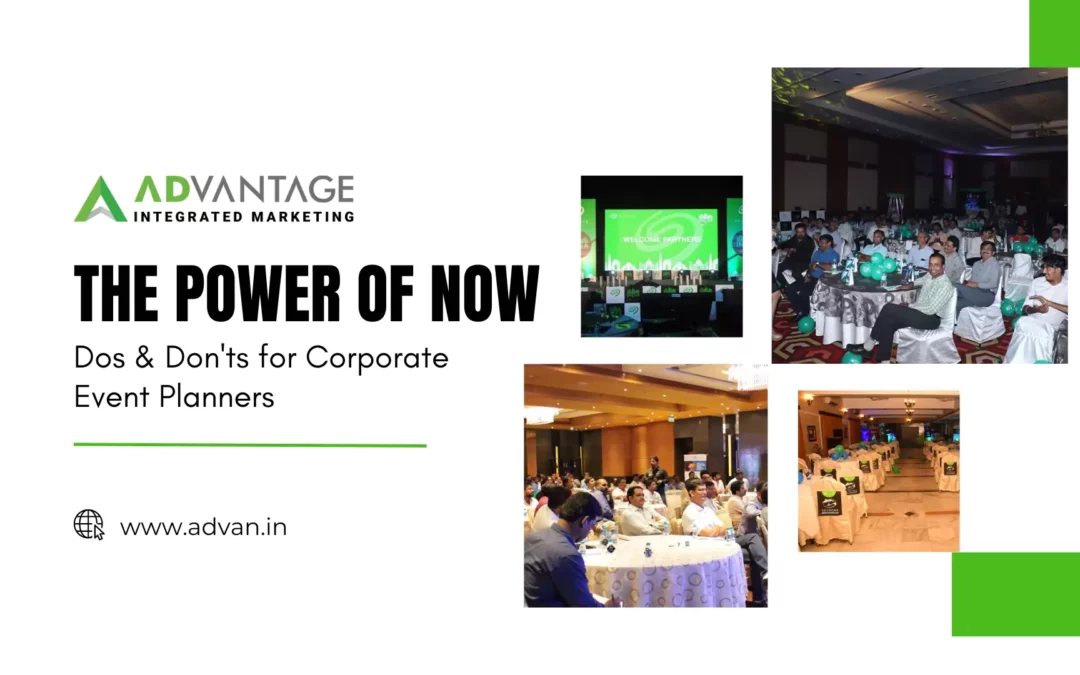Corporate events are now a crucial tool for businesses to connect with stakeholders, boost brand recognition, and promote globalization. These events demand considerable time, money, and resource commitments, and include everything from conferences and trade shows to product launches and employee gatherings.
It is essential for businesses to have a proper plan in event planning for corporate and to accurately measure the efficacy of their corporate events in order to guarantee the highest returns on these investments. Corporate vent metrics are quite important in such a scenario. We will go deeper into the world of corporate event metrics, explore their significance, and learn how they may be applied to assess event effectiveness.
Corporate Event Metrics
Establishing a firm understanding of corporate event metrics is necessary before digging into the monitoring component. Event metrics are the quantitative data points used to assess multiple aspects of an event’s success. These metrics provide valuable information on attendee participation, event reach, return on investment, recognition of the brand, and overall event performance.
Businesses may get an all-encompassing view of how successful their event was by collecting and analysing these metrics and then using the data to decide how to make upcoming ones more successful.
Let’s investigate the growing need for corporate event analytics and their role in corporate event planning.
Assessment and Improvement
You may assess the degree to which an event met its objectives and whether it was a worthwhile expenditure through measuring the success of corporate event planning. You can determine areas of strength and weakness through analysis of the data and feedback, allowing you to make smart choices and improve forthcoming events. You may improve your event strategies and increase the overall effectiveness by using the insights offered on what executed well and what needs to be addressed.
Return on Investment (ROI)
Corporate events need substantial financial expenditures such as those for the venue, advertising expenses, speaker expenses, and other charges. By comparing the advantages of the event against the expenses paid, measuring event success allows in calculating ROI. By quantifying the value generated, you may justify the expenditures while developing more effective budgets.
Stakeholder Contentment
Events for corporates frequently involve a variety of stakeholders, such as employees, clients, collaborators, and sponsors. You can figure out how satisfied they are with the event and get input from them by measuring event success. You could enhance stakeholder relationships and customise future events to their needs by employing this knowledge to better understand their demands, and preferences.
Comparison and Benchmarking
You may establish benchmarks for future activities and assess the performance by measuring the success of events. You could assess the relative efficacy of each event and identify trends or patterns over time by keeping track of important metrics like attendance rates, participant involvement, sales leads generated, or customer satisfaction scores.
You can use such data to inform your decisions and establish achievable goals for future event planning for corporate.
Reporting and Responsibility
Measuring event success delivers you tangible data to show how well your event planning and execution activities succeeded. The top management, stakeholders, and advertisers might be given access to this data in order to show the results gained and validate the event’s value. It promotes accountability for event-related decisions and investments, promotes trust, and strengthens transparency.
Risk Evaluation and Reduction
You can assess potential risks and problems related with forthcoming meetings by measuring the outcome of the event. You may recognize trouble spots or bottlenecks by evaluating feedback from previous events and data, allowing you to proactively sort out them in upcoming occasions. As a result, activities run more smoothly, risks are reduced, and event planning and execution techniques are simplified.
Reputation Management and Brand Development
Corporate events serve as crucial in handling your reputation and building your brand. You can measure the effects of your events on brand perception, consumer loyalty, and market positioning by measuring the success of the event. You are able to track indicators like media attention, social media mentions, participant satisfaction, and brand reach to gain an understanding of how your events assist your business to develop an appealing brand image.
Evaluation of Sponsorship and Partnership
Many of the corporate events depend on sponsorships or partnerships for funding, resources, or experience. Measuring event success offers tangible information and insights that can be shared with sponsors or partners to demonstrate the benefits of their participation. By emphasizing the accomplishments created by the events, it deepens bonds, encourages ongoing partnerships, and makes it easier for future sponsorships or collaborations.
Employee Motivation and Engagement
Employee engagement, motivation, and morale can all be greatly influenced by corporate events, which usually involve employees. You can assess the degree of employee satisfaction, how valuable they thought the event was, and how it influenced their work experience by measuring the success of the event.
Using such information, you may create future events that are better suited to their interests and increase employee morale and work culture.
Industry Awards and Recognition
Industry awards or honours can be used for acknowledging and recognising successful corporate events. You may discover events that have a chance of being noticed while taking part in relevant award schemes by measuring the success of your initiatives. Winning industry honours strengthens both the company’s overall visibility in the industry as well as the image of the event.
Top Corporate Event Metrics
To measure the success of a corporate event accurately, it is imperative to define clear objectives from the outset. These objectives act as a roadmap for planning, execution, and evaluation. Whether the goal is to generate leads, enhance brand awareness, foster client relationships, or educate attendees, having well-defined objectives allows organizations to align their event metrics with their desired outcomes.
Attendance Metrics
Total attendance is one of the key metrics that indicates the overall number of participants present at the event. An easy way to gauge the return on your investment is to know how many people attended your event.
Based on your total expenditures, use this number to determine the cost per attendee. Registration conversion rate could also be used in evaluating event success which indicates the percentage of registered attendees who actually attended.
Understanding the profile of attendees in terms of industry, job role, and geographical location could also be used as a successful metrics in event planning for corporate.
Engagement Metrics
Session attendance is a vital engagement metrics used that measures the number of attendees in each session or workshop organized in the corporate event.
By analysing the interaction rate, it is possible to track attendee participation in Q&A sessions, polls, and surveys. Social media mentions is another method to analyze the event’s social media reach and engagement.
Lead Generation Metrics
Lead generation is the major business objective of many corporate events. Qualified leads very well reflect the number of potential customers generated from the event. Similarly, conversion rate could be used in calculating the percentage of leads that turned into actual sales after the corporate event.
Brand Visibility Metrics
Brand visibility metrics in corporate event planning refers to the impact of the event in hiking brand visibility by conveying the brand message among the event attendees.
Media coverage can be used as a key metrics to assess the event’s media exposure through press mentions, articles and interviews. Social media impressions is another method to evaluate the number of times event-related content was displayed to the users. This in turn would give you an idea on the reach of the corporate event beyond the event venue.
Brand sentiment analysis is another corporate event metrics that helps in evaluating the overall perception of the brand before and after conducting the event. This metrics clearly points out the role of corporate events in fostering relationship among the stakeholders, by boosting brand perception.
Return on Investment (ROI) Metrics
Return/Investment ROI = Event Revenue / Event Expenses
Measuring ROI can also offer valuable data about how participants interact with the event and point out areas that require improvement. Businesses risk missing opportunities to create leads, complete sales, and develop relationships with prospective customers if they ignore ROI to establish the effectiveness of their event marketing efforts.
Other metrics related to ROI are as follows.
Cost per attendee: Calculating the average cost incurred per attendee of the corporate event.
Revenue generated: Estimating the direct and indirect revenue generated as a result of the corporate event.
Planning corporate events: Post-Event Evaluation
The evaluation step commences after the event. Businesses can learn a lot about the success of the event and its possibilities for improvement through reviewing the event metrics that have been obtained. In this evaluation process, key takeaways will be determined after an extensive examination of the event metrics and a comparison to the primary objectives.
Evaluate the event metrics in great detail to spot trends, patterns, and areas of success or failure. To get an in-depth understanding of the event’s influence, look for correlations between multiple indicators.
Determine the elements of the event that met the goals and were successful. Also, identify the challenges or areas that need to be addressed to improve the upcoming events.
Develop practical approaches using the evaluation’s insights. Create an agenda for development.
Shift in Event Metrics with Changing Industry Trends
Event metrics are a field that constantly evolves due to advancements in technology and shifting market layouts. Businesses must change with and employ new metrics and measurement approaches that are in line with changing circumstances. Following are some current metrics and trends for events
Measures of Virtual and Hybrid Events
Latest metrics, such as attendance in virtual rooms, participation in online sessions, and interactions within virtual networking platforms, have evolved with the growth of virtual and hybrid events.
Compliance and Data Privacy
Businesses have to confirm that they comply with data protection laws while collecting and analysing event metrics because of increasing concerns about data privacy.
Metrics for sustainability
Measuring the environmental impact of events, such as carbon dioxide emissions, waste management, and sustainable practises, is becoming increasingly essential as sustainable events gains relevance.
Predictive Analytics
Businesses can forecast attendance behaviour, enhance event strategies, and make data-driven decisions to increase event performance by applying predictive analytics approaches.
Corporate event analytics are an essential tool for evaluating the efficacy of an event and optimising the next ones. By formulating precise goals, choosing the appropriate KPIs, utilising technology, and conducting thorough post-event assessments, businesses may learn more about participant engagement, brand visibility, lead generation, ROI, and other elements. By maintaining up with new trends and measuring techniques as the event scene continues to change, businesses can keep competing while promoting event success.
The way corporate events are scheduled, executed out, and assessed has experienced a revolution because of recent advancements in event technology. The monitoring and analysis of event metrics can be significantly facilitated by utilising the strengths of event management software, mobile apps, and data analytics tools. By enabling real-time tracking, monitoring audience involvement, and data visualisation, these technologies offer more accurate choices and quick modifications during the event itself.
Looking for stunning corporate events?








0 Comments